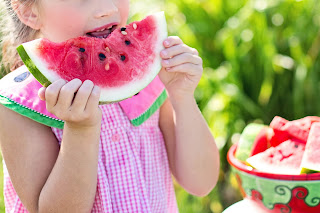When you have children, you take full responsibility for their health, happiness and well-being. At the end of the day, they are entirely dependent on you and it’s up to you to ensure that all of their needs are being met at all times. This can feel like a lot, but it’s one of the basic responsibilities of being a parent. Of course, there are countless areas you can focus on when it comes to catering to your kids’ preferences and needs, but one area you should take into consider is their diet. You need to make sure that your little ones are eating the right amounts, eating the right foods and receiving all the nutrients their bodies need to grow and thrive. Here’s some information that can help you with this.
Making Sure Your Kids Are Eating the Right Amount
Start out by making sure that your kids are eating the right amount of food. They should be having three meals a day, as well as some healthy snacks in between. This will fuel them, giving them energy for school, play and other activities they engage with on a routine basis. Generally speaking, infants and young children can generally self-regulate the amount of calories they need each day. They may ask for more if they’re hungry or not want to finish meals if they’re already full. Avoid forcing your children to finish meals they don’t want. If you have concerns that your child wants too much or too little, visit a doctor or nutritionist who will be able to help you further. In general, it is recommended that one year olds should have roughly 900 kcal per day. 2 to 3 year olds should have 1000 kcal per day. Girls ages 4 to 8 should have 1200 kcal a day, while boys of the same age should consume roughly 1400 kcal per day. Girls aged 9 to 13 are recommended 1600 kcal a day, while boys in this age bracket are recommended 1800 calories a day. Finally, girls aged 14 to 18 require 1800 kcal a day, while boys of this age group require 2200 kcal a day.
Balanced Meals
It’s not enough to simply eat the right amount. Your child needs to be eating the right kinds of foods too. This means a healthy, balanced diet that provides your child with all of the food groups in moderation. Focus on ensuring your kids get their five a day when it comes to fruit and vegetables and consider kids multivitamins to make up for occasional shortfalls.
Junk Food
Junk food is often advertised towards kids. Bright and bold packaging with characters can draw in little ones more than adults. But it’s up to you to limit the amount of junk food, fast food and foods with high saturated fat, salt and sugar levels for your children. While these foods are okay on occasion, they shouldn’t form a regular part of your children’s diet.
Hopefully, some of the suggestions above will make all the difference when it comes to managing your kids’ diets well!

0 comments:
Post a Comment
Thanks for leaving me a comment sweet stuff! I am always glad to hear from you!